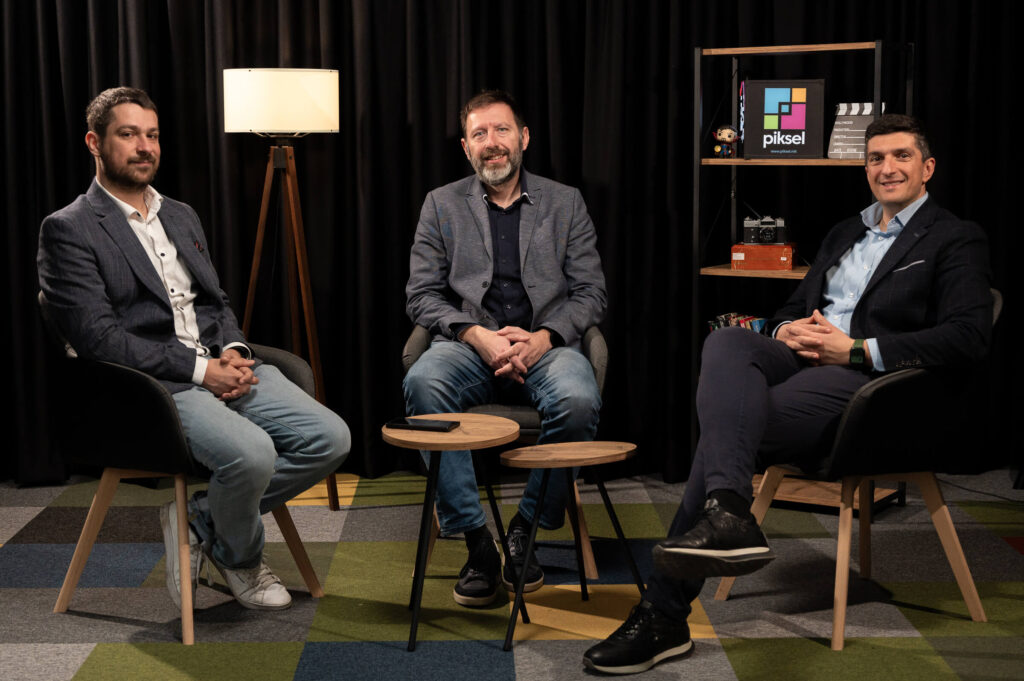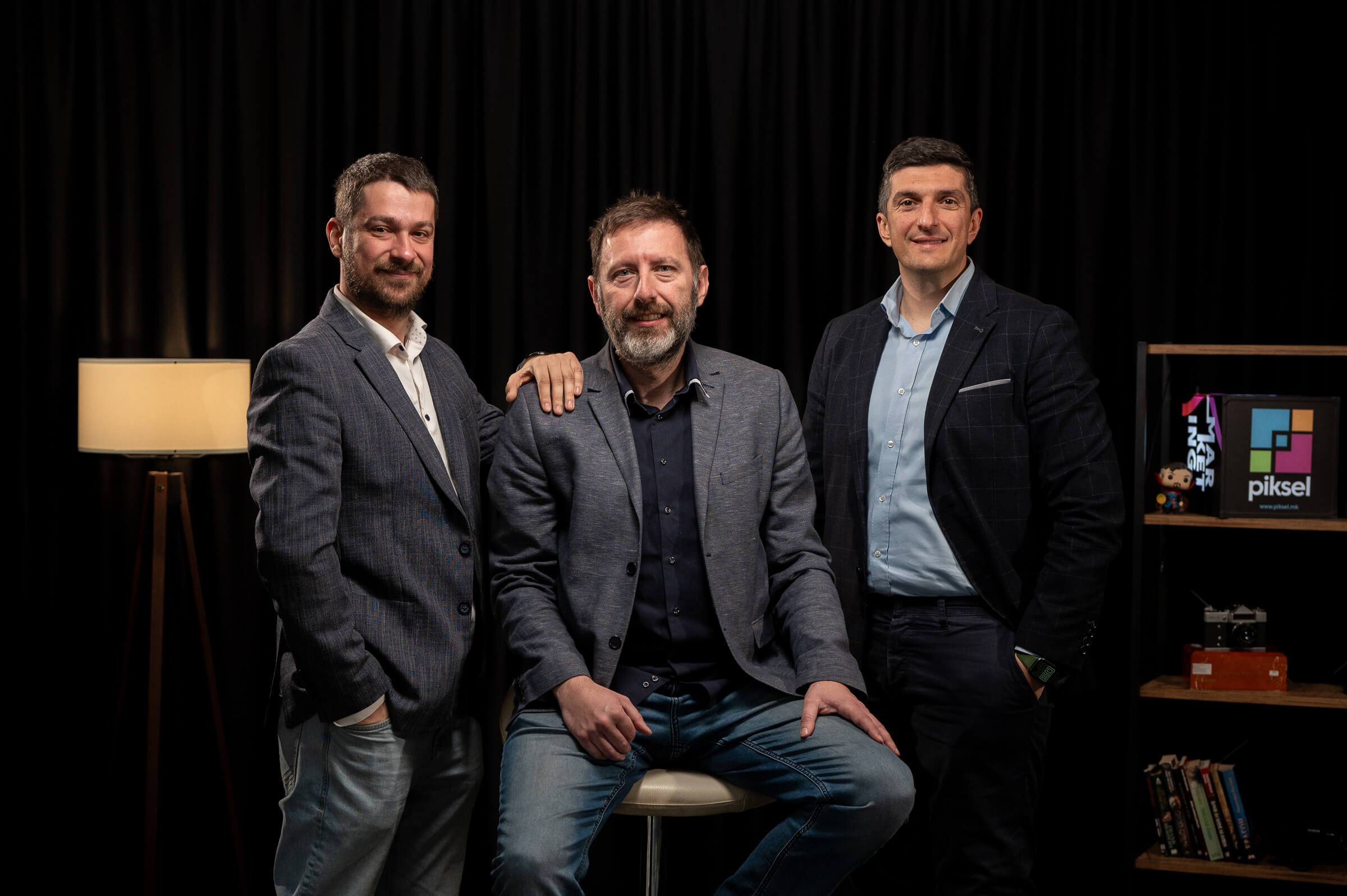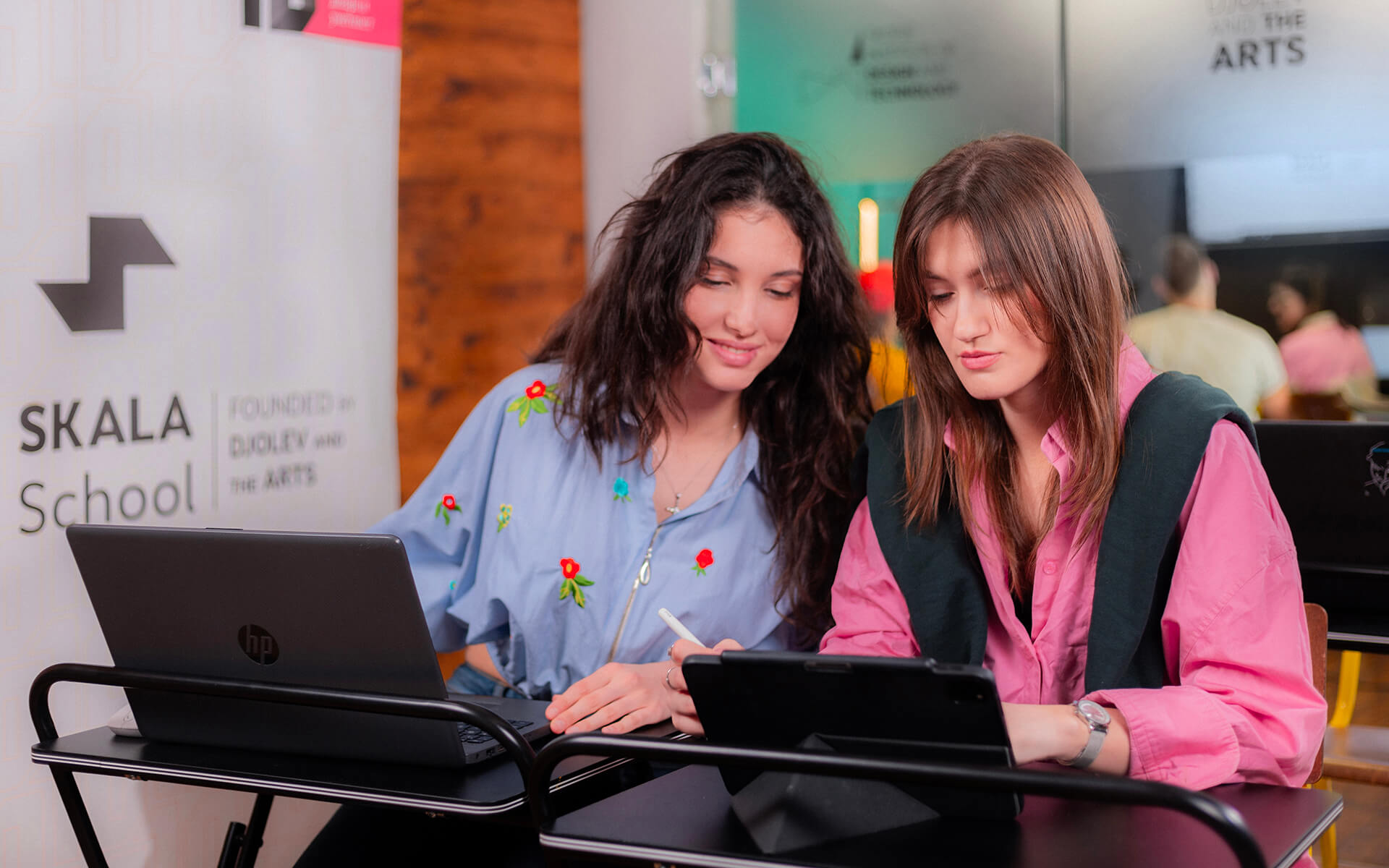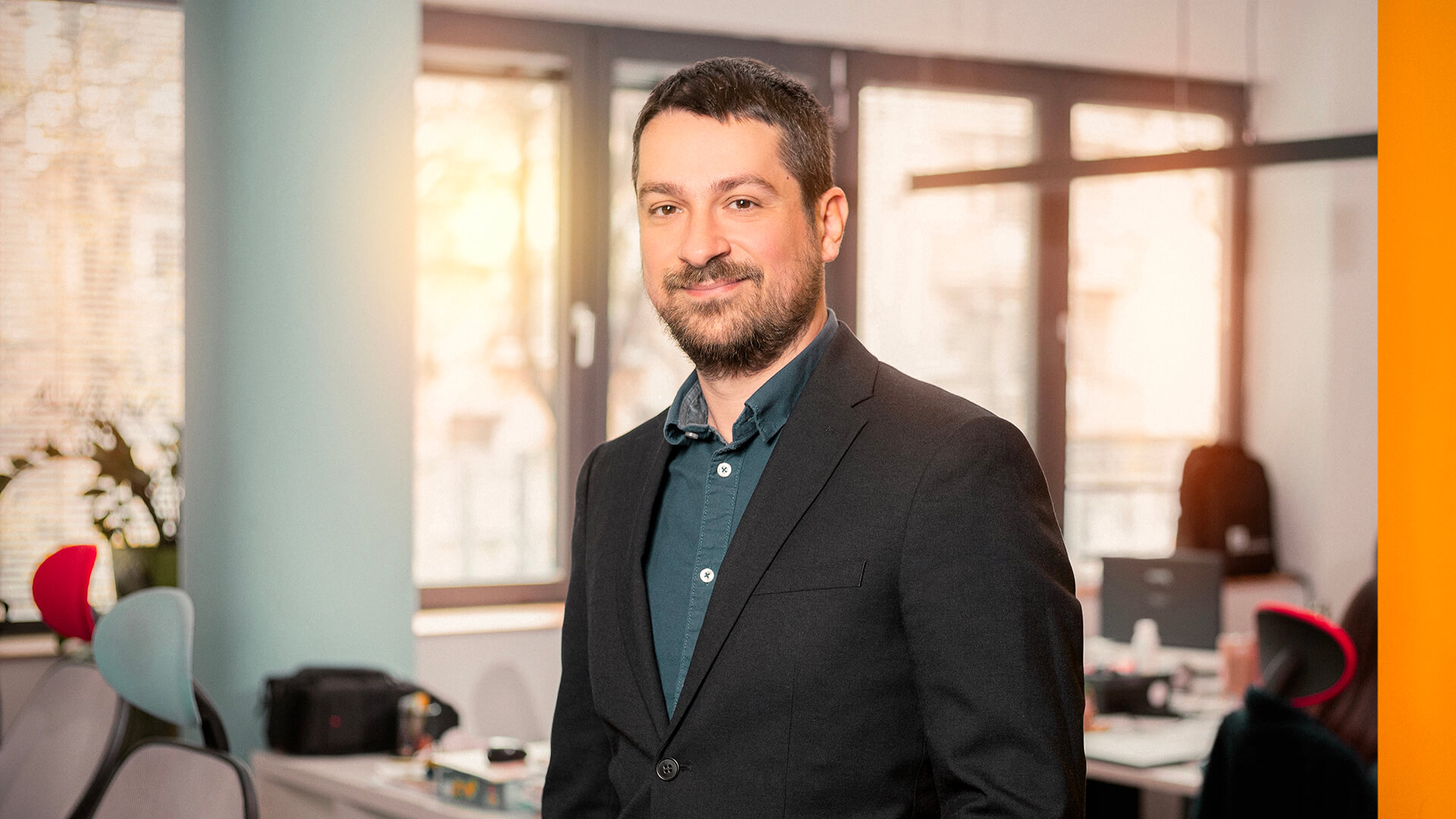In our latest interview for the business magazine Kapital, we discussed how putting our synergy before individualism helped us as co-owners and partners of Piksel to build the company more than we imagined that we could.
From the early days of content creation and social media management to its current role as a comprehensive digital solutions company, Piksel brings an inspiring story about the power of adaptability, synergy, and teamwork. In an exclusive interview for Kapital, the three partners and owners of Piksel – Filip Ristevski, Dimitar Jovevski, and Vladimir Ristevski reveal to us the business dynamics that in the past ten years have positioned the company in the world of digital marketing at the local and regional level.
In 2023, you marked ten years of Piksel’s existence with rapid and significant growth in revenue, human capital, and the offering of services. From a current point of view, what business decisions, except putting individualism aside, do you think were the key to this progress?
Filip Ristevski: From a business point of view, I would put the decisions made as a result of our shared view first – that you need to invest in times of crisis. Dimitar, Vladimir, and I, although very different, share a mutual quality of proactivity, hence the courage to invest in the company in the face of global volatility that seems to have no end in sight.
It helped us not only to get through the hard days but also to make progress. The result so far has been a tripling of both the number of employees and revenues.
Another decision that has proven to be successful since the founding of Piksel is the commitment to providing solutions for the needs and demands of customers and adapting accordingly. Thanks to this attitude, something that started as an idea for the development of a digital product was transformed into an offer of digital services from the sphere of marketing, design, and development, so that today it has already grown into a different company on the Macedonian market, offering a portfolio of various digital and traditional services.
How much of your success would you attribute to leadership style and internal management decisions?
Vladimir Ristevski: I would attribute Piksel’s success primarily to our shared ambition for growth, development, and a proactive approach to change. Hunger for learning, strategic judgment in assessing what is temporary and what are permanent trends, as well as agility in adaptation were essential for us.
In our work, it’s crucial to believe in our ideas before we convey them to the clients. Therefore, our approach relies on creativity combined with data from previous experiences. We as leaders are constantly expanding our horizons for business and creative solutions through regular participation in events, study visits to successful companies abroad, and cooperation with consultants and experts in various fields.
In our leadership approach, we are committed to strengthening the team before making any changes, thus fostering a distinctive company culture that permeates our work with our clients and is visible in our communication to the public.
As a result, we have a solid, coherent team that helps us achieve long-term partnerships with our clients through the consultative approach, thus enabling support for their external positioning and internal improvement through digitization and automation of processes.
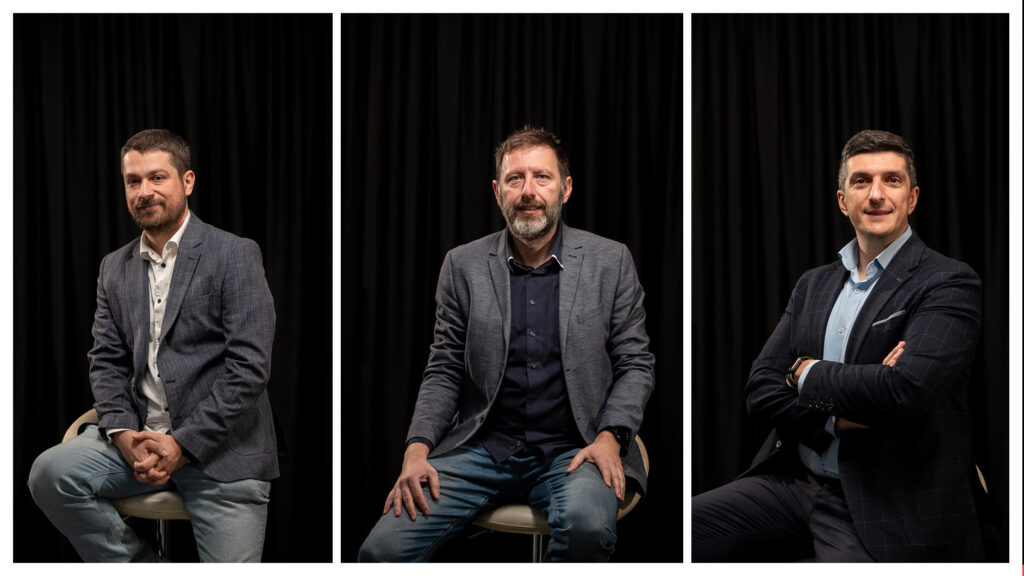
What do you think are the most significant achievements in terms of business development in the past ten years? What were the challenges you faced?
Dimitar Jovevski: Significant achievements in the development of a business are often measured through revenue growth, market expansion, innovations in services, partnerships, etc. Over the years, we’ve had a little bit of all of the above.
In the last two years, we have seen an increase both in income and human capital. The innovation of services is something we are recognizable by in this market, where we have positioned ourselves with clear business units, that is, software development, design, and marketing (digital and traditional).
With our unique position in the market as a company, we were the first to change the model of working with customers in the marketing department and introduced the so-called agile way of working. Instead of working for monthly fixed sums, we offer our clients scalable teams of experts dedicated to their needs.
Expanding to new markets is an essential part of a company’s growth, so over time, we have ensured a presence in more than ten markets, building partnerships with many companies like ours because we know that synergy is always stronger than individualism.
When it comes to challenges, they are always there when you want to be different. The industry we work in is very dynamic and brings the challenge of keeping up with technological changes. Another constant challenge is dealing with competition through innovation, quality, and pricing strategy.
Perhaps one of the biggest challenges we have faced, and I believe we will face in the future, is human capital, that is, the effective management of people and all the challenges that will arise from this complex process.
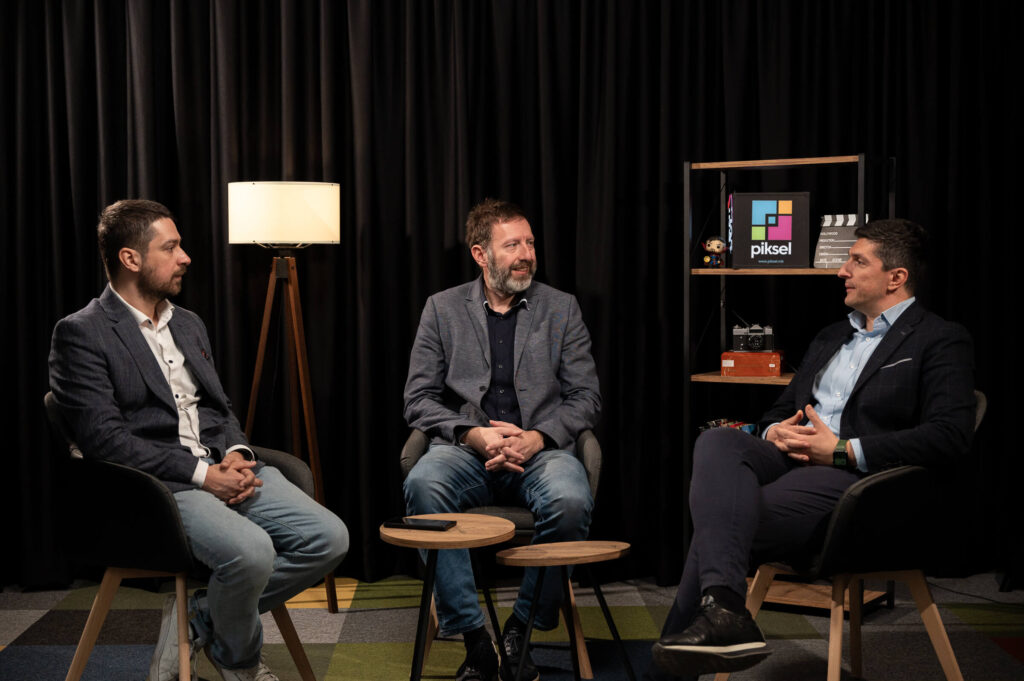
Over the years, you have built a rich portfolio of local and regional clients from various industries. What is your comment on the market regarding the industry, customers, and awareness of digitization?
Filip Ristevski: After the pandemic, our market and companies realized the need to change internal processes in the name of greater productivity and optimization on the one hand but also in keeping up with the global market on the other hand.
As we as a company developed by following world trends, we tried to transfer it to our customers.
What we still try to show today is that companies should hand over their processes to professionals in that area who will create additional value for them while they focus on improving their products and services.
You define your company as a “partner in achieving digital maturity” – what does this mean to you?
Vladimir Ristevski: What is considered “digital transformation” in our country is only the active use of digital channels and is far from transformation. We still lag behind the regional and world markets in terms of innovation, digital maturity, and courage in communication on social networks but at least the awareness of the need is already high.
I think that level is enough for customers to understand that they still have a long way to go to reach a point where half of their activities will be digitized and automated, but also the data and conclusions from those processes will be easily understandable using of generative artificial intelligence which is on the rise right now.
The market is at an ideal initial stage for making changes that we as a company want to build on with innovative and creative digital solutions that will allow companies to mature in the way they grow and develop.
Where do you see Piksel in the next ten years? What are the company’s short and long-term goals in the digital marketing industry?
Dimitar Jovevski: In the coming years, the industry in which we work is expected to develop and adapt to the development of new technologies, and with that, we will also develop. What is sure, in the short term, we will continue to work on being recognized in the market for quality, commitment, and personal approach to customers.
We will continue to innovate and quickly adopt and use new technologies, above all artificial intelligence. On the other hand, in the slightly longer term, we expect to see Piksel as a regional and European partner of many companies in their journey towards digital development and transformation, and of course, towards reaching digital maturity.
